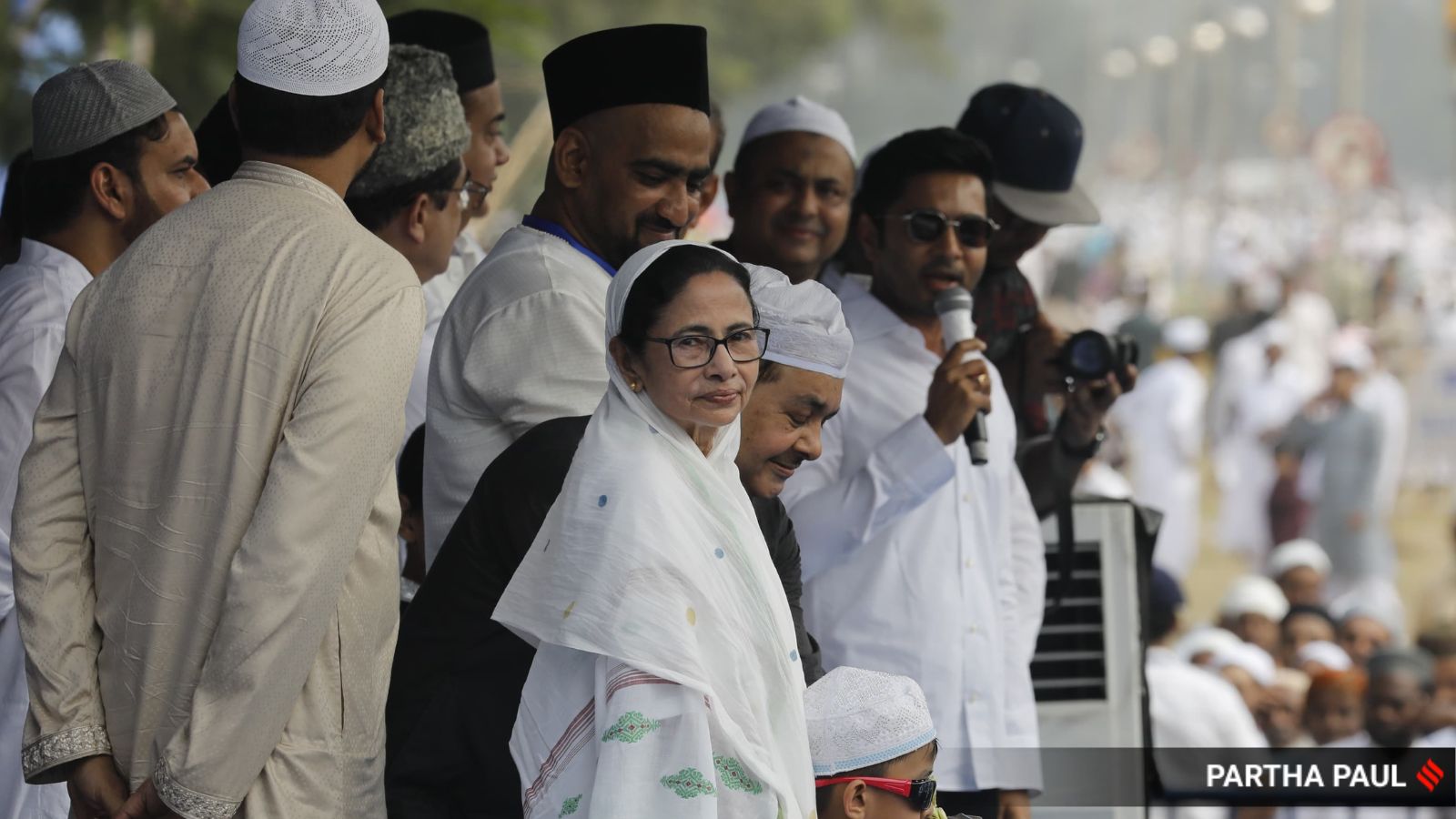 |
|
The article reports on West Bengal Chief Minister Mamata Banerjee's address at an Eid event in Kolkata, where she emphasized the importance of maintaining social harmony and cautioned against falling prey to provocations that could incite communal violence, particularly in light of recent tensions in the Malda district. Banerjee directly targeted the Bharatiya Janata Party (BJP), accusing them of engaging in divisive politics and promoting what she termed 'ganda dharam' (dirty religion), a phrase that subsequently drew sharp criticism from the BJP itself. They alleged that Banerjee was weaponizing religion for political gain, highlighting the increasingly polarized political climate in West Bengal. The Trinamool Congress (TMC) chief also asserted that the Left parties and the BJP had joined forces against her, but she confidently stated that she was 'akela hi eksho' (equal to a hundred people), suggesting her unwavering resolve and ability to withstand their combined opposition. Banerjee’s speech was delivered against the backdrop of prohibitory orders and internet suspensions in parts of Malda following communal clashes, indicating the sensitive nature of the situation and the government's efforts to maintain order. She specifically advised the Muslim community to ignore attempts to instigate violence, reassuring them of her government's support and protection. This plea for calm and unity forms the central theme of her address, reflecting her government's commitment to secularism and peaceful coexistence.
Banerjee's criticism of the BJP's 'ganda dharam' is a focal point of the article, sparking a debate about religious tolerance and political rhetoric. She contrasted this with her own adherence to the principles of Shri Ramakrishna Paramahansa and Swami Vivekananda, figures revered in Hinduism, emphasizing her commitment to a more inclusive and harmonious religious outlook. Furthermore, she extended her best wishes for Navratri, a Hindu festival, demonstrating her intention to acknowledge and respect diverse religious traditions. She criticized political parties for instigating communal violence, asserting that common people are not responsible for such incidents. This accusation was specifically directed at the Left parties, whom she claimed had abandoned their secular ideals and joined hands with the BJP. The phrase 'Jo Lal party pehle secularism ka baat karta tha, aaj woh lal aur gerua ek ho gaya hai' (The Left that used to talk of secularism has joined forces with the saffron party) underscores her disappointment and condemnation of their perceived shift in allegiance. Banerjee reiterated her commitment to secularism and the protection of minorities, stating that the majority has a duty to protect the minority, and the minority has a duty to co-exist with the majority. She even went so far as to say that she was ready to give her life to uphold this ideology, emphasizing the depth of her conviction.
The article also highlights an incident at the University of Oxford, where activists, including some from the CPI(M)-affiliated Students' Federation of India (SFI), attempted to disrupt Banerjee's speech. This incident is used to further illustrate the perceived alliance between the Left and the BJP against her. According to Banerjee, these activists questioned her Hindu identity, to which she responded with pride, declaring herself to be Hindu, Muslim, Sikh, Christian, and Indian, underscoring her inclusive and nationalistic identity. This response reinforces her commitment to secularism and her rejection of narrow religious definitions. The article concludes with the reaction from BJP leader Suvendu Adhikari, who strongly criticized Banerjee's speech, accusing her of appeasing the Muslim community, using incomprehensible Urdu dialect, and making derogatory remarks about 'ganda dharm,' which he interpreted as a reference to Sanatan Hindu Dharma. Adhikari accused her of delivering a provocative speech, deliberately inciting hatred between communities, and weaponizing religion for political gain. He predicted that her actions would backfire, reflecting the intense political rivalry and ideological clashes that characterize the political landscape in West Bengal. Adhikari's counter-accusations demonstrate the deep divisions and mutual distrust between the TMC and the BJP, highlighting the contentious nature of religious and political discourse in the state.
